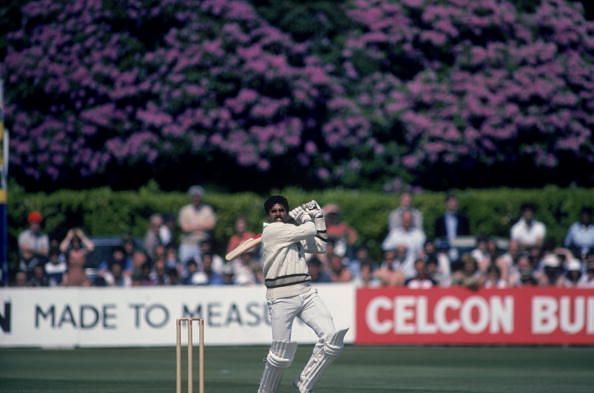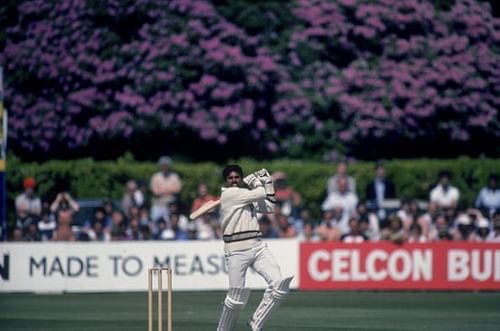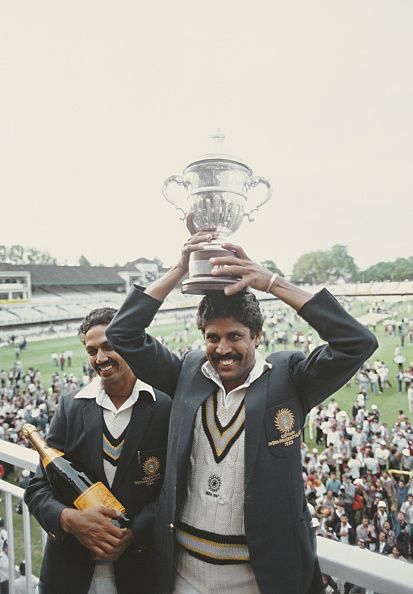
“Our 1983 team had self-belief,” says Kapil Dev
When I was writing my book, ‘The Big Book of World Cup Cricket’, some years ago, I interviewed former Indian skipper Kapil Dev to get an insight on what went into India’s amazing triumph in the 1983 World Cup. The great allrounder was forthright as always, humble about his own brilliant performances, and effusive in his praise for his teammates.

What did your 1983 World Cup team have that the 1975 and 1979 Indian sides did not?
Self-belief. We had a good tour of the West Indies prior to the 1983 World Cup. We levelled the One-day series 1-1 before losing the decider. It was not a joke to beat the West Indies in those days. Once we beat them (in Berbice, Guyana), we realised that we could beat anyone. Besides we had a number of allrounders. If you consider that men like Kirti Azad and Madan Lal - who batted at no. 7 and no. 9 for us - have scored 16 Ranji Trophy centuries each, it becomes apparent that we had tremendous batting depth. Imagine a player like Syed Kirmani was batting at no. 10! Even last-man Balwinder Singh Sandhu could bat. We had attacking batsmen (Krish Srikkanth, Sandeep Patil and Kapil himself) and also those like Sunil Gavaskar, Mohinder Amarnath, Dilip Vengsarkar and Yash Pal Sharma who could see us through the 60 overs. Our fielding was safe rather than brilliant, though men like Roger Binny and Yash Pal were outstanding. Gavaskar did a great job in the slips and Kirmani was a fine wicketkeeper.

No one except Kim Hughes gave your team even an outside chance to win the Cup. Were you surprised at your team’s performance?
Definitely, I was surprised. But everything was clicking for us then. We had belief in ourselves. Victory over the West Indies in the first match of the World Cup gave a kick-start to our campaign. We can win, we thought after this. Our attitude was very good.
In retrospect, you did have a very good One-day side.
I agree we had a good team.
Would you say that it was your innings against Zimbabwe at Tunbridge Wells that turned the tide? You went on to win four matches in a row to lift the Cup quite sensationally.
Rather than my innings, what was critical was that the thought of losing never crossed our minds. There was a terrific bond within that team.
Was the wicket seaming a lot on that day?
You know that matches started at 11 A.M. in England thanks to their long hours of daylight during summer. Even at that hour the ball was nipping around. Crucially, our batsmen kept edging instead of missing. As wickets tumbled, the pressure kept building up. Soon it was 9 for four wickets (when Kapil went in to bat, and then 17 for five).
Did the pitch ease out as your innings progressed?
Yes, it improved and we were able to build up a good total.
Personally too you had a brilliant World Cup in 1983, with bat and ball. Was that your finest hour, or was the Test wickets record more exhilarating?
The World Cup win brought recognition to Indian cricket. It brought about a massive change as far as One-day cricket was concerned in India. Earlier our One-day record was poor. This victory was not a fluke; we went on to win the World Championship of cricket in Australia in 1985. We became a force to reckon with. Even though Test cricket is the ultimate, the World Cup triumph was extremely important for us. People talk about my innings of 175 against Zimbabwe, but look at our team effort and the fine combination we had. Medium-pacers Binny, Madan Lal and Sandhu were the key. For variety we had left-arm spinner Ravi Shastri. Let’s not forget the bowling of Amarnath (slow-medium) and Kirti Azad (quickish off-breaks). In the semi-final at Manchester - where the ball invariably swings around - it was turning and keeping low that day. These two were first-class. They pegged England back and bowled 24 overs between themselves (conceding just 55 runs and picking up three wickets), leaving my main bowlers with plenty of overs in hand. After Amarnath and Kirti had bowled 6 overs each, they would look at me at the beginning of each over and wonder if I would keep them on. I just kept them on and on. Our fielding was also very sharp that day.
Are you aware that you are still the only player to score a century and bag a five-wicket haul in all the World Cups put together?
(Kapil Dev was not aware of this record of his, and expressed surprise when asked about it).
What were your thoughts on the morning of the final?
We felt we had nothing to lose.
Your total of 183 could not have inspired confidence.
They gave us a green top on which the ball was flying around. The great West Indies fast bowlers Andy Roberts, Joel Garner, Malcolm Marshall and Michael Holding made it very tough for us.
Was the ball still moving around when you bowled?
It seamed the whole day. I bowled four maidens, which would not have been possible if the ball was not seaming around.
Gordon Greenidge shouldered arms and was bowled. Sandhu said he thought he had bowled an out-swinger but the ball came in.
It happens sometimes. Once you release the ball you can’t always be sure what it will do. At times I would attempt an out-swinger and the ball would come in after hitting the seam. Sandhu was bowling from the Nursery End from where the ball generally goes away from the right-hander due to the slope at Lord’s. But that delivery seamed in sharply.
At which stage did you think that you could win? Richards’ dismissal? Lloyd’s dismissal? Or later?
Vivian Richards was obviously an awesome player but even though we managed to dismiss him, Clive Lloyd was still there. And we knew what Lloyd had done in the 1975 final. But soon Lloyd (who had a strained groin and Desmond Haynes as runner) hit a catch to me at cover. Then wickets started tumbling.
Surely at 76 for six, you had the match in the bag.
What was important was that their top six batsmen - Greenidge, Haynes, Richards, Lloyd, Larry Gomes and Faoud Bacchus - were out.
Do you think the West Indies batsmen were complacent?
No. When a batsman goes in, he tries his best. It’s pressure that gets batsmen in such situations. It was a World Cup final. The fielding side is always less nervous at times such as this. Ultimately, pressure got to the West Indies.